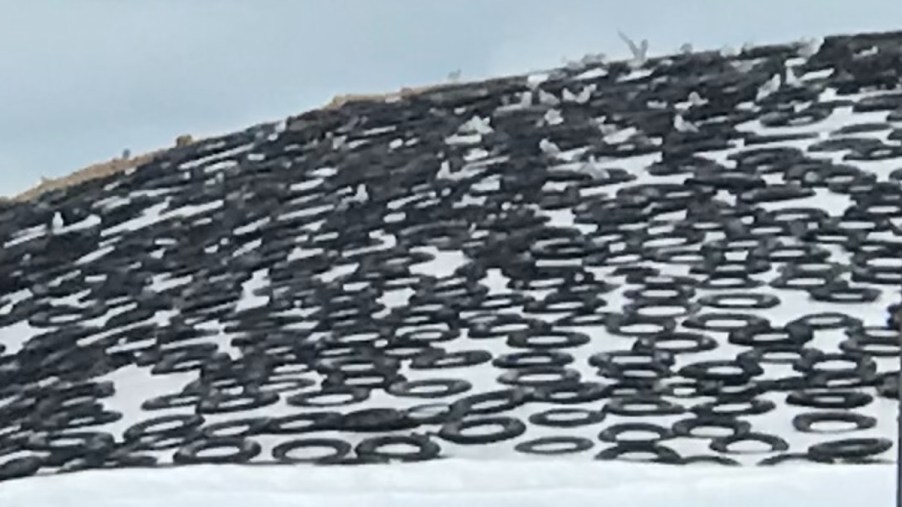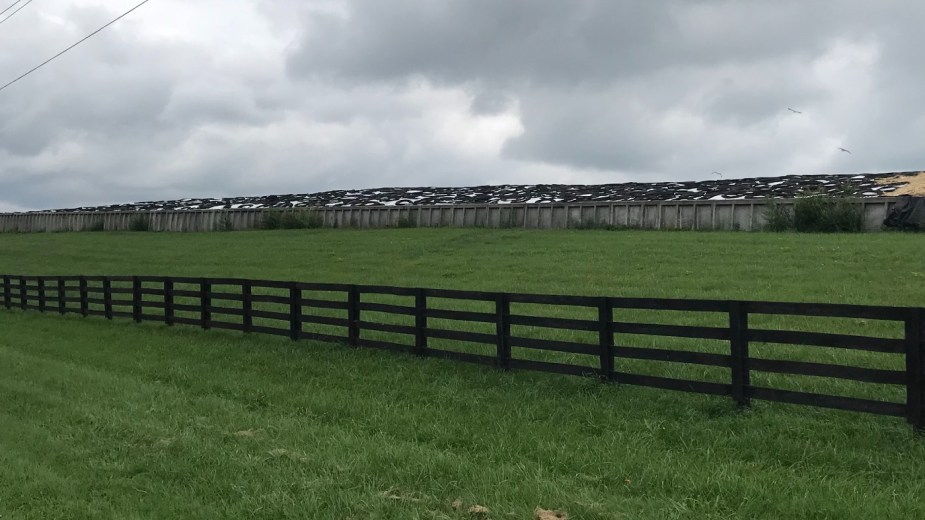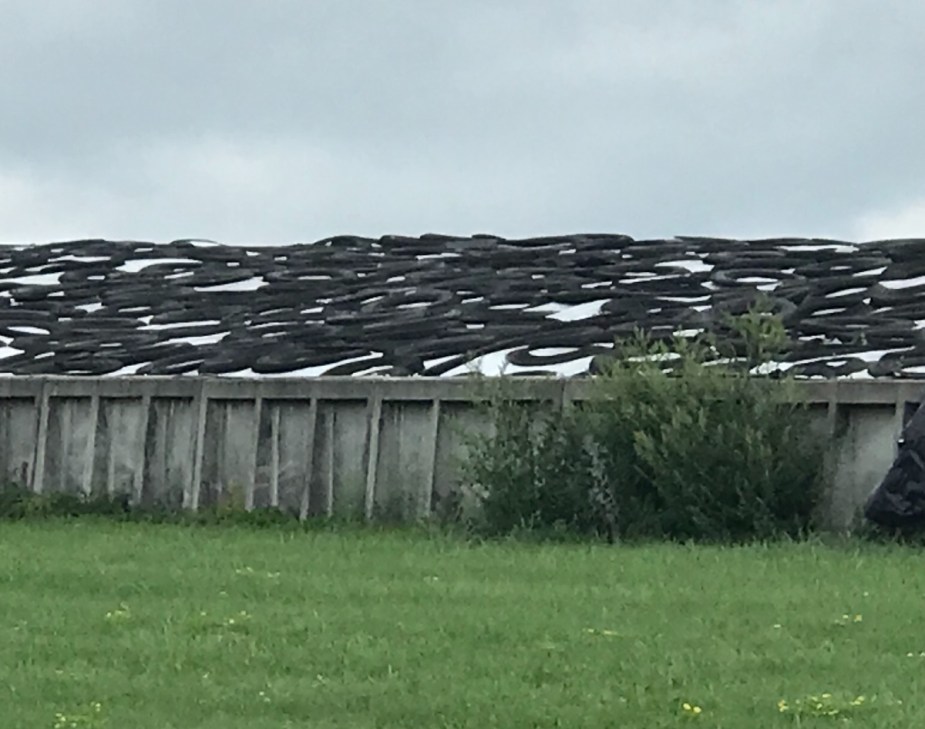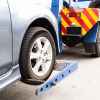
Why Do Farms Put Car Tires on Big White Tarps?
Old car tires have many uses — long after they’ve served their purpose on a vehicle. This includes grinding tires up and mixing them with asphalt to pave roads, using them on playgrounds, and constructing a wall or barrier. Also, if you’ve ever driven in a rural section of the country, you might have seen a rather unusual use for old tires. Many dairy farms have car tires on big white plastic tarps. Why do farms do this?
The reason why farmers put old car tires on feed piles

The big white plastic tarps with old car tires are feed piles. The growing season for the grass that the cows eat on dairy farms is limited to a specific time of the year. The dairy farms need to feed the cows year-round — and the feed piles enable them to do it.
So why put old car tires on the white plastic tarp covering the feed piles? The tires provide a good amount of weight on the tarps to help prevent oxygen from seeping into the feed piles, which causes spoilage. They also help compress the pile and keep the white tarp on it. Furthermore, the tires are easy to move when the farmers need to access the feed pile.
With the tires covering the plastic tarps on the feed piles, farms can typically store the grass for 1-2 years — and sometimes longer — without refrigeration, as detailed by Dairy Moos.
How long do car tires last?
Like many parts of the car, tires don’t last forever. As detailed by Car and Driver, tires “should be inspected, if not replaced, at about six years and should be absolutely be swapped out after 10 years, regardless of how much tread they have left.”
The average tire lasts around 50,000 miles. However, some last as long as 80,000 miles, while some high-performance tires, if driven aggressively, can last only 15,000 miles.
How to dispose of old tires

You can’t simply throw away tires like how you do with the rest of your trash. In many locations, it’s illegal to put tires in the garbage, as detailed by Bob Villa. For one, the tires take up a great deal of space and fill up a landfill. Also, the tires contain steel belts, which can pierce through a landfill and cause ground contamination.
You should recycle the tires. A tire shop and service center can typically do this. Recycling old tires is normally done when a tire shop or service center puts new tires on your vehicle. This usually requires a fee of less than $25 per tire. It’s also good to ask if the old tires will be taken to junkyard or a recycling center. Alternatively, if able to do so, you can haul the old tires directly to a recycling center.
Steel belt contamination problem for car tires on the feed piles at farms
The steel belt contamination problem recently became an issue for the car tires on the feed piles at farms. A recent regulation from the Environmental Protection Agency (EPA) affects how farms can use tires on the feed piles. As reported by The Record, the regulation states that “old tires used to hold down feed storage covers must be cut in half or have holes put in them to keep water from collecting, which gives mosquitoes carrying diseases such as Zika and West Nile virus a place to breed.” The regulation also limits the density for the storage of the tires.
However, many farmers express concerns about the regulation. They say that “cutting steel-belted radial tires leaves metal exposed that can get into the feed and prove fatal to cows.” The pieces of the tires can break off and contaminate the feed silage that the cows eat.
One alternative is to use truck sidewalls, which are large tires with cut-off sides. However, the sidewalls are not as heavy. They don’t hold down the plastic tarps as well — and as a result, allow spoilage by letting in oxygen.


